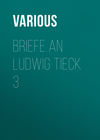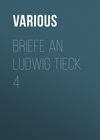Buch lesen: «Appletons' Popular Science Monthly, November 1898», Seite 9
DREAM AND REALITY
By M. CAMILLE MELINAND
There is a very striking resemblance between dreams and waking perceptions. We see in dreams objects, persons, and events identical with those of the waking state. The belief in their reality is as complete as in that of what we see when awake; the emotions are as deep and vivid. Pleasures have a delicious savor, and pains are even more intense than those of the reality – as, for instance, those of nightmare, and the distresses to which we give ourselves up in full. In all cases these dream troubles seem as real as those of life, and are taken by us quite as seriously; and the existence of everything we see and feel is as evident as in life.
Still we oppose the dream to the reality. The waking world is our true, our only world; the world of the dream seems to us purely interior and chimerical. The incoherence and absurdity of our dreams surprise and amuse us, and we are amazed to find that we have been able to believe, while asleep, in such foolish things. In short, dreaming is synonymous to us with illusion, phantasmagoria, and falsehood. The clearest of the prevailing theories about dreams rest upon the postulate that waking perceptions are the true ones, and the visions of the dream are false. They have answers to the three questions we are used to ask concerning dreams – Where do they come from? why are they incoherent? and why do we take their visions for realities? They explain dreams as former sensations reviving within us under different combinations, and as therefore simply confused reflexes of the reality. Dreams may, however, sometimes be produced by a present impression suffered by one of our senses, half awakened – a contact, the way we are lying, and the condition of the organic functions being thus the causes or occasions of dreams. The incoherence of dreams seems no more mysterious in these theories, and is explained as the result of two causes – the slumber of the "reflecting" faculties, judgment, reason, the will, the exercise of choice and control; and, secondly, the unrestricted reign of imagination and the association of ideas. Our faith in the reality of the things dreamed is accounted for by the mechanical play of the images, the law being set up that every image that is not opposed by stronger images appears to us a real object. The problem, therefore, resolves itself: the senses being asleep, the images that arise within us are not contradicted by normal sensations, and that is why we take them for realities. Further, our reflective faculties, being likewise dormant, can not contradict the images, in the absence of sensations, reasonings, or recollections. Hence a credence, as absolute as unreasonable. We purpose to show that there is something artificial and prejudiced in the classical theory of opposition between dreams and waking, which assigns illusion, confusion, and incoherence to the former, and solid and permanent reality to the latter, and that the difference between them is not so clean cut.
Most persons in talking of this subject say that they are sure of the reality of things when awake because their different senses concur in attesting it. They see a tree, and satisfy themselves that it is a tree by going up and touching it. They smell a rose, and go find the rose, look at it and handle it; while in dreams we are not able to apply these supplementary tests. The distinction is imaginary, for our senses likewise seem to support one another in dreams. We dream not only that we see an object, but also that we feel and hear it. When I dream of meeting a friend, I believe that I see him and shake hands with him and hear him speak. There is, therefore, a complete identity of the two conditions as to this point, and the thing that appears to me in a dream is a "bundle of sensations," visual, tactile, auditive, muscular, and often olfactory, just as it appears to me when awake.
We are told of another difference. When awake, we find others agreeing with us in recognizing the reality of things. I see a tree, and so do those with me; I show it to them, and they look at it; I feel of it, and they touch it; I hear the rustling of the leaves, and so do they. Our perceptions in practical life are thus tested by comparison with those of others, whereas in our dreams we have our solitary and fanciful visions all within ourselves, with none to participate in our perceptions of them.
This supposed contrast is no more real than the former one. What is true is that when we are once awake we change our point of view, and our vision of the night then seems to have been wholly interior, solitary, and subjective. But, notwithstanding the common illusion, while we are dreaming affairs pass, to us, exactly as when we are awake. It is true that in the waking state we find ourselves mingled with other men, who perceive the same objects that we do. Do we not sometimes dream that we are one of an audience looking at a play? that we are talking with a friend, and exchange views with him? and that we understand one another perfectly? There is, therefore, in this aspect, not a difference but identity between the dream and the waking. The interior condition, the sensation, the credence, are identical. The dreaming man believes, sees, and feels himself in intercourse with his fellows, just as the man awake believes, sees, and feels it. When we wake, we discover our mistake, but what of that? It does not prevent us from believing completely in it while we are asleep. And this is the point; for, after all, am I sure that I shall not awake some day from what I now call my waking life? And who knows whether I shall not then judge that I have been dreaming a solitary dream? It may be added that the agreement of witnesses is not a decisive sign by which to distinguish the reality from the dream. There are collective hallucinations.
We come now to a more important difference, which includes the principle and has a characteristic apparently essentially distinguishing the dream – its looseness, disorder, inconstancy, and incoherence. In the dream visions succeed one another without connection; no law determines their order; an unrestricted fancy reigns among them, and the normal is broken up in them at every point. We are transported instantaneously from one country to another. We pass without transition from childhood to age, and causes have the strangest effects. The most essential laws of thought are constantly violated. There are facts without any causes, metamorphoses, magical disappearances. Even the absurd is realized, and the "principle of contradiction" does not seem to be any more respected than the others. We are at the same time in two places; we pronounce words, we hold conversations of which we can not when we wake recover the thread, so strange is their logic, so fugitive the sense, and so fanciful the combination. A practiced psychologist, M. Delbœuf, succeeded in taking down in the morning the last phrase of a book which he had been reading in a dream, and which had seemed then remarkably lucid. Here it is: "The man raised by the woman and separated by aberrations pushes facts disengaged by the analysis of the tertiary nature into the way of progress."
Is this distinction, then – that the dream is incoherent and the real rational – any more just than the others? It is doubtful if it is. There are rare dreams in which everything proceeds in a regular and natural way; and, on the other hand, reality is not always exempt from capriciousness and improbability. But to me the capital objection to the distinction is that it is illusory, and the contrast between the disorder of dreams and the coherence of the real is only apparent. The dream, it is true, appears disordered to us, but that is when we are awake. An essential point which we always ignore is that while we are dreaming everything seems simple and normal and regular to us. We are not at all astonished at what happens. We find it all right to be in two countries at the same time, and we understand very well how one person can be changed into another. The conversations we have – those which are utterly unthinkable when we are awake – usually appear to us marvelously lucid, and we admire the ease, the verve, and the luminous continuity of our words. We enjoy that moving with so much suppleness and precision among ideas; our demonstrations are infinitely convincing; and it is perhaps in the dream that we have the most perfect sense of evidence.
Everything, then, that passes in the dream is – to the dreamer – as natural as events in the waking condition. When awake, events seem, without exception, natural and regular; they also seem natural and regular in the dream. It is true that we find them absurd when we wake, but what of that? They are absurd only by comparison, as looked at from the point of view of the waking man, who is no longer the same that he was when dreaming. Who can tell if we shall not awake some day from what we now call our waking condition, and that we shall not then find the events absurd that we now consider rational and real? Who can tell that we shall not be stupefied at having been so firmly attached to invisible phantoms and disordered combinations?
In setting up a fourth distinction it is said that real life forms a continuous whole, while dreams are not connected with one another. The series of my days forms a single life, which holds together. I resume to-day my life of yesterday, and shall resume to-morrow my life of to-day. While I am asleep, the course of it is only suspended. I begin again in the morning at the very point where I stopped in the evening. I find myself in the same medium, occupied with the same thoughts, subject to the same cares, involved in the same routine of events, the same storm of passions. The same thread runs through it all. On the other hand, it is said, our dreams do not form a consecutive existence. The dream of one night has no connection with the dream of the previous night. On going to sleep to-night I have no assurance that I shall find the landscapes or the personages or the circumstances of my last dream. The most diabolical nightmare may succeed a most delightful romance. In short, not only is the form of the same dream incoherent, but our successive dreams are incoherent as to one another. This was what struck Pascal when he wrote: "If we dreamed the same dreams every night, we should be affected by them as we are by things we see every day; and if an artisan was sure to dream every night, for twelve hours, that he was a king, I believe he would be nearly as happy as a king who dreamed every night, for twelve hours, that he was an artisan… But because dreams are all different, and the same one is so diversified, what we see in one affects us much less than what we see when awake, because of the continuity of the waking life, which is not so continuous and even, however, but that it changes, too, though less abruptly, if only rarely, as when we travel; and then we say, 'It seems like a dream to me,' for life is a somewhat less inconstant dream."
What are we to say to this distinction? I do not believe it is necessary to take it seriously, any more than the others. When is it that we pass judgment on the discontinuity and incoherence between our successive dreams? Not while we are dreaming them. When I am dreaming, I seem to be pursuing a life that has always been the same. I have no sort of an impression that the present dream has been preceded by different dreams having no connection with it. I have, on the contrary, exactly as I have when awake, the impression of an indefinite and single series of events, of an unrolling of them without arrest and without break. There is, therefore, on this point, no difference, but another resemblance between the dream and the reality, and the same impression of continuity and unity prevails in both. It is true that the aspect changes in waking, and our several dreams then appear detached from one another. But what of that? Are we sure that we shall not awake some day from what we now call the waking state, and find then that that state, continuous in appearance, was in reality composed of a series of separate, incoherent, and incongruous fragments?
Thus we are all the time coming upon the same illusion. We judge of the dream, not by what it is, but by what it seems to have been after we have waked. Instead of observing the impressions of the dreaming man while he is dreaming, we take notice of what he thinks about them after he has waked up. This is to falsify the comparison of the normal and dream life by regarding the normal life while we are in it, and the dream life when we have come out of it. The several other difficulties on which psychologists have insisted are capable of solution by the application of the same principle: the seeming suspension of the will; the want of correspondence of the moral standards of the dream with those of the waking condition; the confusion of temporal duration and sequence; and the transformations of personality and character, concerning which I would ask, however, if the eccentricities betrayed are not rather in the nature of more complete exposure. I have sometimes been surprised at the psychological revelations of dreams; faults and weaknesses that we do not avow when in the normal condition reveal themselves then with inexorable frankness; we yield to temptations that we evaded when awake, though inclined to them; to wickednesses which we kept closely shut up within us; reveal antipathies which we had dissimulated. Base desires break out, latent loves declare themselves, and things take place which, as in a play, bring the farthest depths of our hearts into the light; and when we wake we say: "That is true; it is just what I should have done under like circumstances. I had never thought of it, and I am not proud of it, but it is so."
There is this real distinction between the dream and the waking state: that when awake I know there is another condition, while in the dream I take no thought of the waking state. Awake, I know that I have been living the fantastic dream life, and have come out of it into a real life completely distinct from the other. I am in a first state, and know there is a second. But when I am dreaming I have no thought of another state that I have come out of and must return to; I do not feel that there is another existence, radically separated from this one; and I never compare the visions of my dreams with my waking world, for I know nothing of it. I have the impression of having always lived the life I am in, which seems natural; and even if I ask whether I am not dreaming, it is a merely verbal expression, with no accompanying sense of the meaning of it. Another distinction, and the only absolutely clear one, is that while we always wake from the dream, we never wake from the reality. This is why we believe in the reality and not in the dream.
These two differences are differences in degree, but they do not necessarily indicate differences in nature. Similar facts are frequent among hypnotics. We may plunge them into a condition of somnambulism which we will call a second state; and then, from that, magnetize them over again into another somnambulism, which we call the third state. Now the curious fact comes to pass that the subject in the third state recollects the second state, but when in the second state again, knows nothing of having been in the third state. "Lucie 3," says M. Pierre Janet, "recollected her normal life perfectly; she also recollected previous somnambulisms, and all that Lucie 2 had said… It was a long and hard task to awaken this subject after she had passed a few minutes in the syncope already described. She then returned to ordinary somnambulism, but Lucie 2 could not tell me a word of what had happened to Lucie 3, and supposed she had been asleep and said nothing." Thus we have the same difference between two successive stages of somnambulism as between the dream and the waking state. But as the stages 2 and 3 are evidently of the same nature, so we have a right to suppose that the dream and the waking, whose phenomena as to each other are similar, are likewise of the same nature.
In the ordinary experience of mankind we do not awake from our normal condition; but is it proved that there is never any awakening, any third state into which we may pass? The supposition of some such state into which we pass by death is one of the fundamentals of nearly all religions; and in this sense we might contemplate the possibility of an awakening in which we shall be astonished at having given ourselves up go completely to the world of sense, at having taken a passing state for the definite one, an ephemeral world for the sole and absolute world, a provisional existence for the real one.
Even among men as we find them, we see some making an approach to a third state, if not living in it. What is science but the revelation of a new world, different from the visible one? When we see light and colors, they tell us of an invisible ether with particles vibrating with almost incalculable rapidity; when we hear faint or loud sounds, sharp or grave, they tell of the more or less ample and rapid vibrations of matter. When we perceive a multiple or varied reality, it shows us the single phenomenon of motion. These formulas do not, however, signify, as some mistake, that light, color, and sound do not exist, but that there is something else; and that if we could gain new senses, a new universe would open out to us. This means, simply, that the scientific man is already half waked up from his ordinary life, and has half entered a new world.
Metaphysics is a waking up of this kind. A metaphysician who really believes his doctrines, like Plato or Spinoza, is already living in a new world and contemplating the supposed reality in which we are still immersed as a matter of indifference away off in the dim twilight. To him, what we regard as reality is only appearance, while the eternal rain of atoms or the play of immaterial forces, or whatever he supposes the world to be made of, is the true reality.
Religion is another such awakening, and to the devout man this life is only a provisional one, a trial, the prelude to the true life; and while he may regard the world of sense as real too, he looks forward to the superior reality, which it is the privilege of the elect to contemplate; and it is some feeling of this kind that has sustained martyrs and has incited men of all ages and all faiths to suffer and endure, and die for what they believe. —Translated for the Popular Science Monthly from the Revue des Deux Mondes.
A PRACTICAL DUTCH CHARITY
By J. H. GORE
Holland, Scotland, and Switzerland, quite unlike physically, have in their institutions many points of similarity, and the impulses and character of their people are almost identical. In religious matters the resemblance is also striking, even though the creed professed be known by different names.
In Scotland the struggle for existence demands something more assertive than the doctrine of laissez faire; the terrible sweep of the avalanche in Switzerland, without any apparent cause for its starting, suggests an acceptance of the belief that "it is, because it must be"; while Holland, in its incessant war with the sea, is continually bidding defiance to natural laws, and protesting against their unrestrained action.
Calvinism found its strongest adherents in the two countries first named, and the faith of Luther answering to the active instincts of the Batavian race was at once adopted by it. In Holland as well as in Switzerland man is ever reminded of life's realities by the watchful care necessary for his very existence, and the material obstacles which must be conquered at every step. Patriotism never becomes dormant because the face of the land shows in its scars its history, and love for home grows with each reckoning of the cost of its retention. The possessions of one day are in many instances no guarantee of the wealth of the next, and the hand now extended in giving assistance may on the morrow be held out to receive. Thus we find the charitable instincts always awake, and societies for the relief of the needy thoroughly organized.
The conditions under which Holland began its geographic formation and the processes afterward employed to hold or enlarge her boundaries, together with the social unrest of the time, caused thoughtful men to put in operation every agency that could direct the innate desire to do good and to give direction to the forces within the kingdom, as well as those which came from without. In Holland, therefore, we find numerous societies for the relief of suffering humanity, and people ever ready to give due attention to the complaints and necessities of the laboring classes. No other country offers such an excellent field for the study of charitable institutions. The Dutch are eminently practical; they made an early beginning in the work of alleviating distress, and this relief, from the nature of things, as pointed out, is not spasmodic as in other countries where nothing short of famine, earthquakes, or floods can awaken the people to a realization of the duty they owe to mankind. Here the call for aid may come at any time, so that those charitably inclined must be ever ready to respond, and the organizations for relief can never become lax or inefficient.
Then, too, the population of the Netherlands is very homogeneous, and the leaders in all good works are not only administering to their own people, but are unbiased by prior experiences under other auspices. Consequently, this country furnishes institutions organized under normal conditions, with an entire absence of external influences, and where the helped and the helpers are of the same race.
England, France, and Germany have sent commissions to Holland to study its organized charity, its school system, workingmen's societies, and like institutions. These countries have but little in common, even though their forms of government are, or have been, outwardly similar, while on the other hand we have always found in the Dutchman "a friend and a brother," and an example well worthy of following. And since it is only after examining remedies for evils found without complications, that we can prescribe for abnormal conditions, the study of Dutch institutions is the best possible preparation for arriving at the means for meeting the necessities in our own country.
In Holland the general awakening to the demands of the people came in the eighteenth century, when the social life was lacking in strength, when the rich were largely given over to extravagance, while the poor were neglected, uneducated, and exposed to want. Everything seemed to separate the two classes – nothing emphasized their interdependence. The citizen class was restive under these oppressive conditions, and needed only the successful example of some neighboring people to start the revolution within their own country.
There was in the Netherlands at this time at least one thoughtful man who foresaw the approaching social revolution and realized the danger which threatened his native land if unaccustomed rights and powers should become the possession of those who heretofore had felt the power of others. This man was Jan Nieuwenhuizen, the founder of the Society of General Welfare. It is impossible to estimate the good which has been accomplished by this organization. It instituted free schools, and gave to the state the scheme on which the present public-school system rests; it established savings banks, and the Postal Savings Bank – now the model of the world – was glad to copy after them; it conducts a sort of neighborhood loaning banks, and it is likely that its plans will be incorporated in the agricultural banks now under consideration. Through its instrumentality people of different classes are brought together in periodical meetings, when the lower can learn by observation from the higher, and lose much of the prejudice and envy which is so often felt, while the higher will become more tolerant toward the lower as they realize the burdens which the latter carry, and appreciate the obstacles which mar their progress, thus leveling many of the artificial class distinctions.
What this society has done for Holland, "Ons Huis" is trying to accomplish in Amsterdam; and though the latter is occupying a more limited field, its energies are more concentrated and its methods are such as to warrant its characterization as a practical charity.
The founder of "Our House," Mr. Janssen, fully realized that outright giving while blessing the giver is of questionable value to the recipient, and alms once accepted suggested in the ease with which it was obtained that a second be asked for, and the feeling of dependence soon calls into existence the belief that the uncontracted debt of a living must be collected. We therefore find a charitable organization in which everything must be purchased, but at cost so slight as to be within the reach of all, yet being a charge, no benefit is esteemed for naught because it was obtained for nothing.
We find this unique society in a sort of "people's palace" in the very center of Amsterdam's working population. The building, which is the gift of Mr. Janssen, is on Rozen Street, Nos. 12, 14, and 16, extending through to Rozen Gracht, and contains a board room, reading room, library, gymnasium, lecture room, assembly rooms, large hall, kitchen, quarters for the janitor's family, and a restaurant.
The purpose is declared to be "to promote the moral and material development of the people – poor as well as rich – both in giving and receiving by inducing those who are blessed with knowledge or money to assist their fellow-beings whose lives are monotonous and devoid of comforts and pleasures." The very name – "Our House" – is intended to show that within its walls all enjoy equal rights, that the less learned are the younger members of the family whom the less ignorant will gladly instruct, and that the purposes and aims of all classes should be the same. Both sexes have equal privileges, and the religious and political views of those who attend the meetings or enjoy the benefits offered are never inquired into. The adherents of all faiths are treated with equal deference, and the only condition imposed is the observance of such principles of etiquette as should find favor in every home.
Since the day of rest of the various religious sects is not the same, all days are regarded as of equal importance, but, to meet the objections of the Protestant clergy that the exercises here kept people away from the church services, it has been decided not to open the building on Sundays until noon. But as the hours of employment of many persons are so long that their evenings are not free, the reading room is open on this day after the hour named, and certain instructive lectures are given during the afternoon. At these the average attendance is about five hundred. A strong effort was made to have the building closed during the whole of Sunday, however. The argument was made that as long as beer gardens and places of amusement were open on this day, the people should not be restricted on the only holiday of the week to those places where money is spent for trifling pleasures. The large number of persons who spend Sunday afternoon in the reading room proves that the opportunity to make good use of their time is fully appreciated.
Before giving in detail the plan of work in hand, it should be said that the director has secured the assistance of about one hundred and fifty men and women who are willing to contribute their time to the furthering of the purposes as outlined. They are divided into fourteen groups, or committees, each looking after a single interest. The means as at present constituted for attaining the ends in view may be classified as follows:
1. Reading room for men and women not under eighteen years of age; open daily.
2. Wednesday evening lectures on literature, history, physics, pedagogy, political economy, and travel. These lectures are open for debate.
3. Courses of lectures on different topics for men and women separately, or for both together. These discussions are marked by an intimate tone.
4. Sunday evening meetings: musical or theatrical performances, magic-lantern pictures, tableaux, etc. These are given in the large hall, which accommodates five hundred and twenty-five persons.
5. Legal advice.
6. Clubs for boys, girls, men, and women. Friendly intercourse. Discussions on scientific subjects. Chess club. Travel club.
7. Lessons in Dutch, French, English, and German, bookkeeping, reading and writing for adults, needlework, mending, making and cutting of one's own clothes, cooking, drilling for boys and girls, fencing, acting, chorus singing.
The reading room is provided with a large number of daily and weekly papers, magazines, and technical journals, together with such books as could be purchased or obtained as donations. The user of the reading room pays ten cents a quarter, with the privilege of bringing one friend a week as a guest. Every conceivable device is employed to induce visitors to make use of the books; for example, the lecturers frequently choose a literary topic, and refer to the books in the library, or one of the members of certain manual-training classes read aloud while the others work. Then some of the social evenings are given up to the discussion of a new or popular author, and persons skilled in reading aloud are asked to read or recite choice extracts. To accommodate those who feel that three months' subscription is for too long a period, the regular admission fee of two Dutch cents – equivalent to eight tenths of a cent of our money – gives the right to make use of the library during the visit. It now looks as though the impulse to secure a shortening of the work day would come from this organization in its desire to secure for its beneficiaries a longer time in which to profit by the use of the books and special opportunities for study here placed at the disposal of the workingmen. The reading room is looked after by a committee of twenty, some of whom are always present to give aid and advice to the readers, to answer such questions as may arise, and to keep the books and papers in place.




















